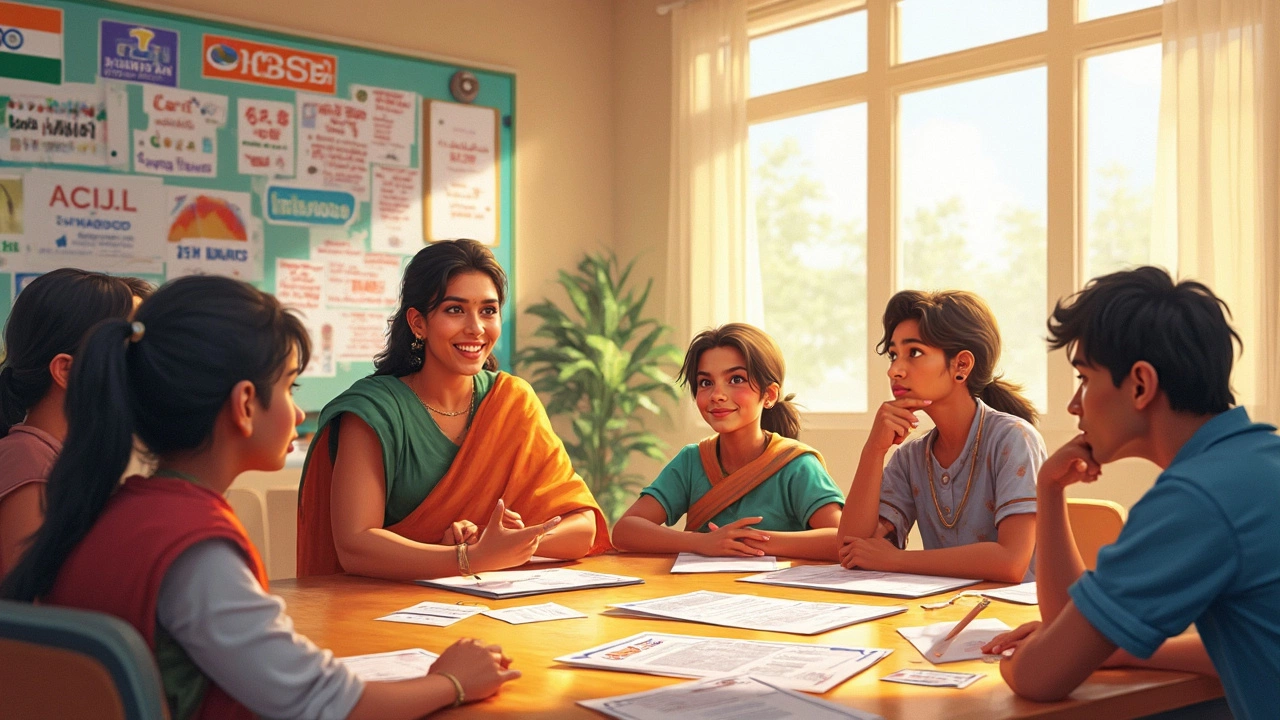Higher Secondary Education: Practical Tips & Real‑World Resources
If you’ve just finished class 10, the next two years feel like a huge leap. That’s the higher secondary stage – class 11 and 12 – where you pick subjects, sit for board exams, and start shaping your career path. It can feel overwhelming, but the right plan makes it doable.
Choosing the Right Board and Subjects
India offers three main boards: CBSE, ICSE, and state boards. CBSE is popular for its focus on science and math, which helps with engineering and medical entrances. ICSE leans more toward English and detailed concepts, good for humanities and law. State boards follow the local curriculum and often have lower fees.
Pick a board that matches your future goals. If you’re aiming for JEE or NEET, CBSE’s syllabus aligns closely with those exams. For a broader outlook or overseas studies, ICSE can give you stronger language skills.
Once the board is set, choose subjects wisely. Most students take Physics, Chemistry, and Mathematics (PCM) or Physics, Chemistry, and Biology (PCB). Adding an elective like Computer Science, Economics, or Psychology can boost your profile and keep options open. Remember, you’ll sit for six board exams, so balance core subjects with at least one elective you enjoy.
Study Hacks and Career Planning for Higher Secondary
Time management is the biggest game‑changer. Break the syllabus into weekly chunks, then daily to‑do lists. Use the Pomodoro technique – 25 minutes of focused study, 5 minutes break – to keep concentration high.
Active learning beats passive reading. Write short notes in your own words, teach the concept to a friend, or solve a few problems right after learning a theory. This reinforces memory and highlights gaps early.
Online resources are free and plentiful. Websites like Khan Academy, BYJU’S, and Unacademy offer video lessons that match CBSE/ICSE topics. For practice papers, check the official board websites – they publish past year question papers and answer keys.
Don’t forget career planning. While you study, research the courses you might want after 12th. Look at eligibility, entrance exams, and job prospects. If engineering is your target, start a test‑series for JEE early. For medicine, focus on Biology and start solving NEET mock tests.
Finally, stay healthy. Regular sleep, short exercise, and proper meals keep your brain sharp. If stress creeps in, talk to teachers, seniors, or a counselor – they’ve seen these phases before and can give realistic advice.
Higher secondary is a stepping stone, not a wall. With the right board, smart subject mix, and disciplined study routine, you’ll finish class 12 confident and ready for the next chapter.
Curious about what a 12th class degree is officially called in India? This article breaks down the correct terminology, how it works in the CBSE system, and clears up common confusions. We cover exam boards, certificates, and what you should write on forms. Plus, some surprising facts and tips about using your 12th certificate for admissions and jobs. If you want the real scoop, you’ll find it here.
